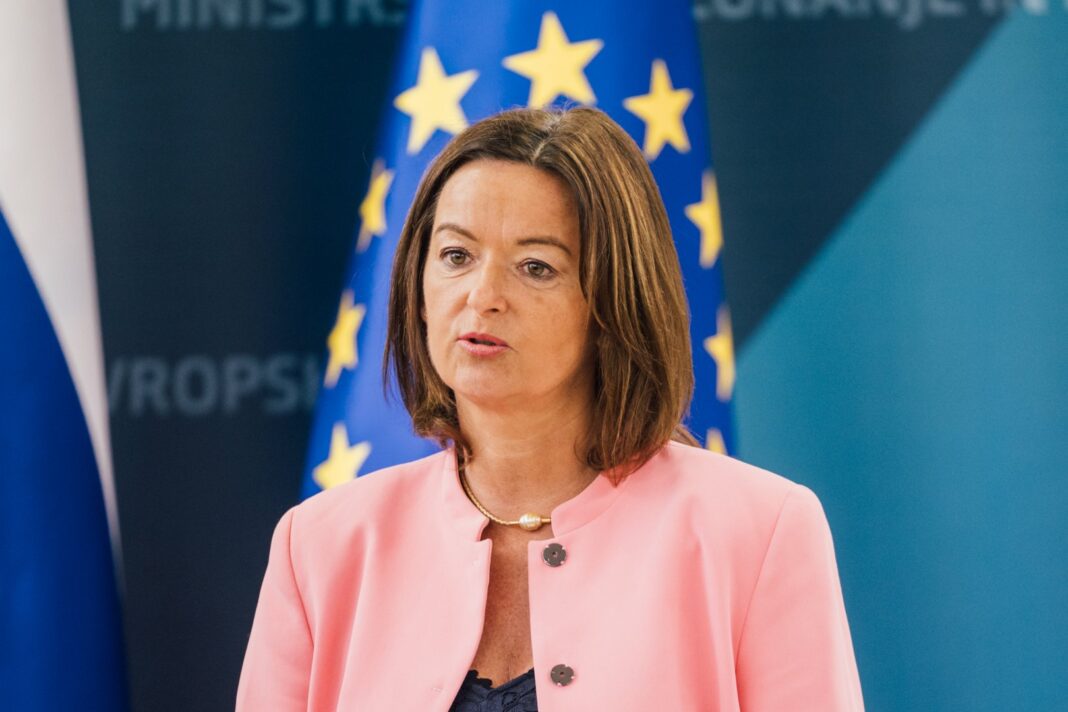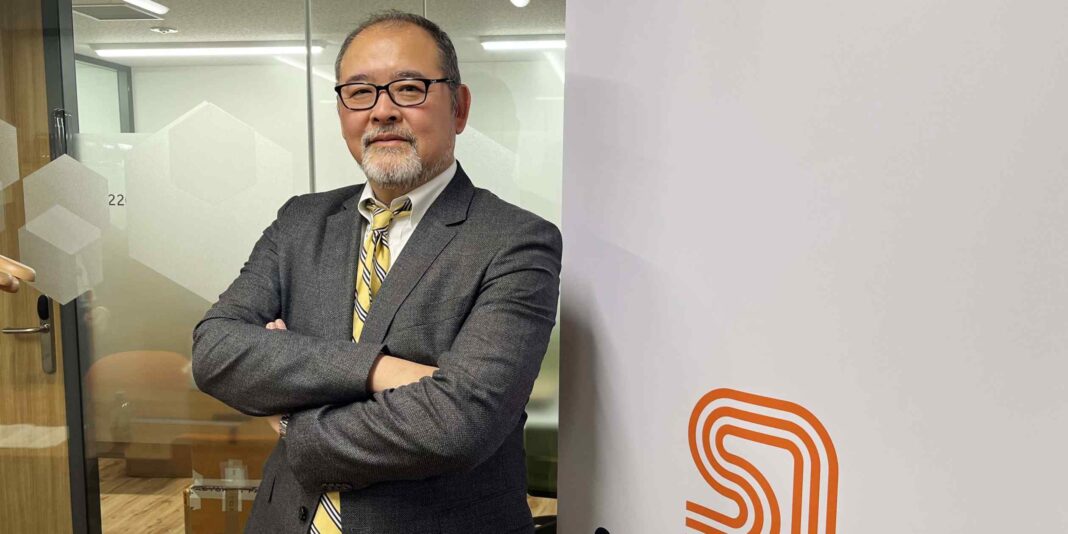BAKU, Azerbaijan, April 16. The main task of
the first meeting of Slovenia-Azerbaijan Economic Cooperation
Working Group to be held in Baku will be to identify concrete
business and investment opportunities, Deputy Prime Minister,
Minister of Foreign and European Affairs of Slovenia Tanja Fajon
said in an exclusive interview with Trend ahead of the visit to Azerbaijan.
“We are pleased with the positive and regular political dialogue
between our two nations. As we approach the 30th anniversary of
diplomatic relations in February 2026, we are proud to reflect on
the deepening of ties between Slovenia and Azerbaijan. The main
objective of my official visit to Baku is to further strengthen the
bilateral partnership between our respective countries, focusing on
expanding cooperation in political, economic and multilateral areas
of mutual interest. My wish is to provide a platform to advance our
common goals, particularly in the energy sector, where Slovenia and
Azerbaijan have made significant progress in recent years. A key
focus is to continue to build on the positive economic
developments, especially in energy cooperation,” she said.
Fajon pointed out that Azerbaijan is an important trade partner
for Slovenia in the region.
“In 2024, the value of trade between the two countries increased
by 57%, reaching EUR 37.7 million. We look forward to further
strengthening economic cooperation between our two countries, to
which both the Azerbaijani-Slovenian Business Forum and the
inaugural meeting of the Working Group on Economic Cooperation,
which will be held in Baku on 17 April 2025, will undoubtedly
contribute. Both countries have substantial markets and strategic
positions that offer valuable opportunities for expanding business
activities,” noted the deputy PM.
She went on to add that as a young and dynamic country, Slovenia
is proud of its membership in the world’s most important
international organizations, including the OECD.
“Our achievements are well recognized in the multilateral arena:
in the beginning of 2025, Slovenia became a full member of the
European Space Agency (ESA) and is now preparing for full
membership of the European Organization for Nuclear Research
(CERN). Our country also hosts the headquarters of UNESCO’s
International Research Centre on Artificial Intelligence (IRCAI).
With its advanced high-tech expertise and innovative achievements,
Slovenia offers a highly skilled workforce, excellent
infrastructure, access to regional markets and a high quality of
life. Slovenia has an open, export-oriented economy with a broad
industrial base, ranging from pharmaceuticals to information
technology and the automotive industry. During my visit to Baku, I
will be accompanied by representatives of a number of Slovenian
companies from a wide range of sectors, including information and
communication technology, unmanned vessel manufacturing, maritime
automation systems, construction and manufacture of metal
structures,” said the deputy PM.
Fajon pointed out that Slovenia is the first country in the
world that was awarded the title of a Green Destination of the
World.
“Slovenia and Azerbaijan have traditionally enjoyed close
cooperation in the pharmaceutical sector; international generic
pharmaceutical companies Krka and Sandoz have been present in
Azerbaijan for many years, as well as in the field of information
technology through the company Kontron. There is further potential
for increased cooperation in the construction of small hydropower
plants, photovoltaics, sports infrastructure, the electrical
engineering industry and the use of space technologies for river
basin management and climate resilience,” she said.
Fajon noted that today’s global circumstances require companies
to remain adaptable and explore business opportunities in new
markets.
“In the context of the war in Ukraine, Azerbaijan has become
particularly important for the development of the Middle Corridor
for East-West Trade, which is set to become the fastest and most
direct trade route between Asia and Europe. The
Slovenian-Azerbaijani Business Forum, organized by SPIRIT Slovenia
and AZPROMO, takes place on the sidelines of the official visit and
provides an excellent platform for expanding business relations,
promoting direct investment and opening up new opportunities for
both countries. In addition, the first meeting of the Economic
Cooperation Working Group has set the stage for a future of
increased cooperation and growth in various sectors,” she said.
The Slovenian deputy PM noted that the recent signing of a
Memorandum of Understanding (MoU) on energy cooperation is a
decisive step in strengthening the partnership in the crucial
sector of energy.
“The MoU paves the way for increased collaboration in energy
production, supply and innovation, which is vital not only for our
two countries, but also for regional and European energy security.
By fostering closer ties between Slovenian and Azerbaijani
businesses, we aim to create new opportunities for trade,
investment and innovation. The Business Forum will be a key event
during this mission, highlighting the potential for further
economic cooperation. In addition to economic objectives, we are
also committed to continuing our efforts to promote regional
stability,” she said.
She said that Slovenia, as a member of the EU and, at the
moment, also as a non-permanent member of the UN Security Council,
is a staunch supporter of regional stability and swift resolution
of regional issues, including in the South Caucasus. “It encourages
all parties to move towards a peace agreement without further
delay. Peace and stability in the region are vital not only for our
two countries, but also for wider regional and global
security”.
Fajon noted that Slovenian and Azerbaijani economies share many
similarities, which provide a solid basis for building future
cooperation.
“Our two countries are firmly committed to transboundary water
cooperation and are parties to the Water Convention, which Slovenia
will chair for the next three years. Both countries are also active
members of the International Renewable Energy Agency (IRENA).
Slovenia has been elected to chair the IRENA Assembly in 2025 and
we look forward to working with Azerbaijan to achieve our shared
goals. Given that Slovenia recently won an EU tender for the
development of a high-performance supercomputer and artificial
intelligence factory, the field of digitalization offers
significant potential for cooperation. At the Ministry of Foreign
and European Affairs, we have placed science, technology and
innovation alongside economic and cultural diplomacy. We believe
that science diplomacy is a key instrument for promoting Slovenia’s
strategic priorities. Our goal is to make it one of the core tools
for enhancing competitiveness, while also contributing to
sustainable development and overall prosperity,” said the deputy
PM.
She went on to add that in Slovenia, smart specialization serves
as a platform for connecting Slovenian companies with research
institutions in various fields.
“From the perspective of internationalization, the most relevant
of these are the Strategic Research and Innovation Partnerships
(SRIPs) for the circular economy, smart factories and
digitalization. These areas offer significant potential for closer
cooperation between relevant institutions, educational
establishments and businesses. Slovenia is the third most
industrialized country in the EU and makes significant investments
in the circular economy, sustainable tourism, robotics,
digitalization, space and creative industries. I am pleased that
the first meeting of the Economic Cooperation Working Group will
take place in Baku during my visit. Its main task will be to
identify concrete business and investment opportunities,” said
Fajon.
She noted that Slovenian companies have so far identified
opportunities in Azerbaijan in the energy sector, with a focus on
renewable energy sources such as solar and wind power plants, as
well as energy efficiency technologies.
“Construction and infrastructure are also promising sectors. In
industry and manufacturing there is potential for cooperation in
production modernization, automation and the supply of high-tech
equipment. There are also opportunities in agriculture and the food
industry, particularly in technological solutions to increase
productivity and the processing of local agricultural products.
Information technology and digitalization are key to the future
development of the economy, with Slovenian companies offering
cutting-edge solutions in areas such as smart city development,
cybersecurity and digital services. Companies such as C-Astral,
Kontron and Medex are eager to explore new opportunities in sectors
such as ICT, renewable energy (including photovoltaics and
hydropower) and innovative food supplements,” noted the Slovenian
deputy PM.
She pointed out that another area where Slovenia hopes to
stimulate growth is in water technology.
“Slovenia is inviting Azerbaijani companies to apply for the
2025 International European Water Awards, which will be presented
at the Bled Water Forum on 4 and 5 June, under the patronage of
President Nataša Pirc Musar, further strengthening our cooperation
in this field. Through this visit, we aim to deepen our
long-standing partnership with Azerbaijan and ensure that both
countries continue to prosper politically, economically and
diplomatically. Together, we will continue to work towards a
peaceful, prosperous and stable future, contributing to the wider
goals of regional and global cooperation,” said Fajon.
She expressed satisfaction that last year, the Slovenian gas
supplier Geoplin and the Azerbaijani state company SOCAR started
business cooperation, which has already resulted in agreements for
short-term products.
“I also welcome the recently signed Memorandum on Energy
Cooperation between our two countries and fully support the
continuation of talks between Geoplin and SOCAR with a view to
concluding a medium- or long-term supply agreement, in which the
Slovenian side is certainly interested,” Fajon concluded.


